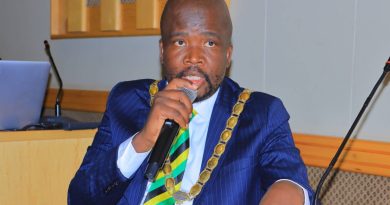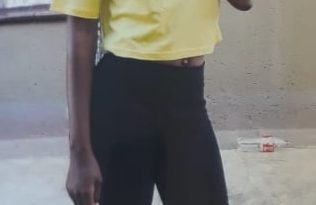Uncovering the rich ancient history of Bakgaga Ba Kopa Tribe
TAFELKOP
The Bakgaga Ba Kopa tribe split from the Kwena of Mashabela approximately around 1740 and settled at the Moganyaka (Leeuwfontein), before eventually relocating to Thabantsho/ Maleoskop near Groblersdal in the early 185O’s, where they first settled at De Oude Stadt to the west of modern Groblersdal.
During the early nineteenth century, their traditional leader, Kgoshi Boleu I, moved from Mmitse and settled on top of the Maleoskop peak/ Thabantsho.
Bakopa of King Boleu I, the Ndebeles under King Maboko and Bapedi under King Sekhukhune I, were the prominent tribes resident in the area between Pretoria and Lydenburg, the capital of two Boer republics respectively.
In the 1860s, Bakopa acquired Rietkloof 166 JS Farm together with the neighbouring farms around Weltevreden, where then the government of Lydenburg gave the land formally to Bakopa. The condition was that Bakopa had to keep laws of the state, including paying taxes.
During the mid-19th Century, when two missionaries of the Berlin Mission Society (Germany) Alexander Merensky and Heinrich Grutzner arrived at Lydenburg, they hoped to establish a mission station under the Swazi people, but the Swazi King was not willing to accept them and as a results they approached King Boleu I to start their missionary activities under the Bakopa and they were accepted.
In August 1860, Bakopa arrived on the Rietkloof Farm and established their first Berliner Mission Station north of the Vaal River, Gerlachshoop, on the land that King Boleu I allocated them for that purpose.
The Boers waged a battle against Bakopa in 1861, but King Boleu’s warriors succeeded to drive the attack back to them. On the 10th May 1864, the Boer Republic again together with a Swazi army’s collaboration attacked the Bakopa and King Boleu I was assassinated, most of his family killed and his soldiers suffered a defeat. The remnants of his people were dispersed over a wider area.
One group led by a senior surviving son of Boleu I, Rammupudu, remained in Thabantsho, another group led by another son of Boleu I, Matsepe, left Thanbantsho to settle in Moganyaka (now called Leeuwfountein).
In 1865, Kgoshi Rammupudu took refuge to Botshabelo near Middleburg, probably due to continued harassment by the Boers, but returned to Maleoskop around 1883.
After Rammupudu seek refuge, his son Joshua (Joswa), became the new Kgoshi followed by Namane who was Joswa’s son.
During the reign of Kgoshi Namane Rammupudu in the early 1950s, the intention to remove the tribe from Maleoskop grew even stronger as the apartheid government was implementing early stages of its apartheid system.
The people resisted with all energy and the might they had. In 1957, Kgoshi Namane Rammupudu died and his wife, Mamorake, took over the leadership of the tribe, as her son Boleu II was still young to rule the tribe.
After various consultations with the tribe and scores of detentions and arrests coupled with restrictions and banning of some members of the community who blatantly refused to co-operate with the Boer Government, the people were ultimately removed by force in 1962 from their land and settled at Tafelkop.
In defiance, after their arrival in Tafelkop, some moved back to Maleoskop, many were arrested and banished, one of them, Monamudi Matsepe, was sent to prison and hard labour in Polokwane.
Also Moilanong Matsepe, then a Sergeant in SA Police Force, was transferred to South West Africa (Namibia) as a move by the apartheid government to neutralize the community.
In February 2004, Bakgaga Ba Kopa’s land in Thabantsho (Maleoskop) was partly restituted by the new democratic government.
Their struggle for repossessing their land showed light at the end of the tunnel and gave them renewed hope. According to them, no amount of money can erase the memories of their hurt endured in the past centuries in the fight for their land.
Bakgaga Ba Kopa had fought for their land for generations, with their struggle over land began in 1860 during the reign of King Boleu I.
The Bakgaga Ba Kopa claim was lodged by the present leader, Kgoshi Boleu Rammupudu II on 02 May 1997.
On the day of celebrating the partial restitution of their claim, descendants of Bakgaga Ba Kopa, young and old, from different parts of Limpopo and Mpumalanga Provinces, gathered on the Rietkloof Farm, which is one of the portions of Maleoskop/ Thabantsho. Approximately 2 640 households will benefit from the claim.
A further number of about 8 farms claimed by the community should have been validated for gazetting in past few months if there were no bureaucratic delays.
Bakgaga Ba Kopa community is engaged in protracted negotiations with Blue Ridge Mining, which currently holds mining rights on one of their claimed farms Ramponegele /Blaauwbank.
In the past two years the Bakgaga community were characterized by internal strife, due largely to a group of people who tried to sway the community on mining issues.
The community has however, remained resolute and is now engaged in a process of establishing proper governance structures and development plans to ensure optimal use of the property, facilities and the mining prospects.
Bakgaga community currently occupies sections of Tafelkop Village including Majakaneng, Stadium View, Botloponya, Nyakelang, Bakopa, Bapeding, Matebeleng, New Stands, also parts of Dikgalaopeng and Thabantsho/Maleoskop.




